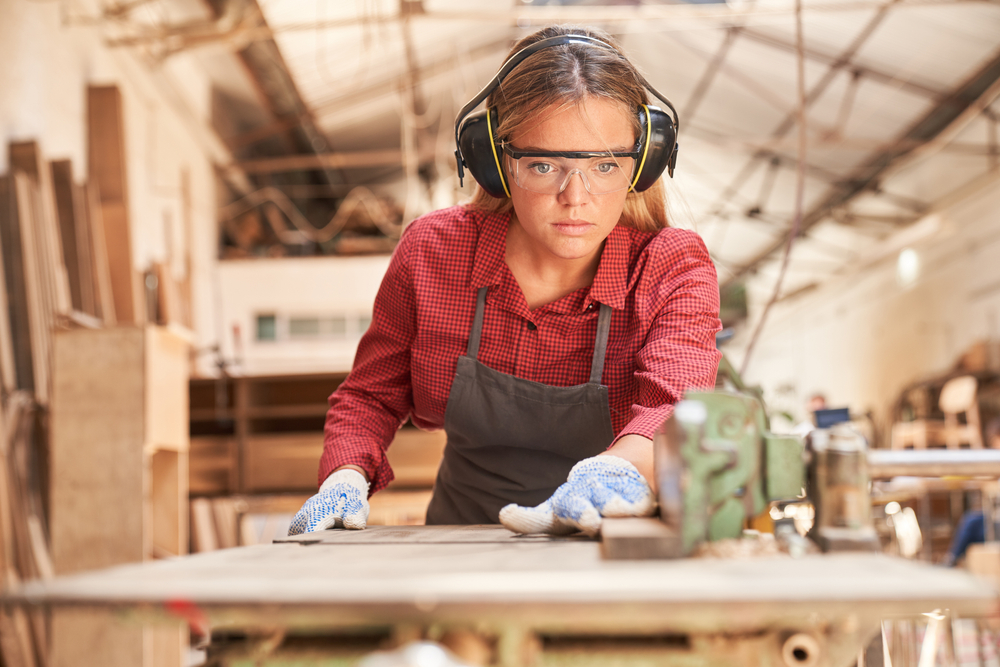
Whether you’re attending concerts, working, or doing some yard work, hearing protection is crucial in keeping your ears safe from harmful noise levels. However, you could be left exposed to potential risks if any one of a number of possible factors interferes with your hearing protection’s effectiveness. In order to understand and effectively maximize the benefits of your ear protection, it’s crucial to understand these issues.
Why hearing protection fails: common scenarios
Unexpected difficulties will happen even when you maintain best practices. You steer clear of overly loud situations as much as possible, use earplugs at concerts, and diligently use earmuffs at work. Yet, certain variables can still interfere with your hearing protection’s efficiency. Luckily, by acknowledging these common pitfalls, you can make educated adjustments to ensure your hearing is always well-protected.
1. Choosing the wrong hearing protection for the situation
The effectiveness of hearing protection can be reduced by choosing the wrong type for the given situation.
Generally speaking, hearing protection falls into two main categories:
- Earplugs: Small, flexible inserts that seat snugly inside the ear canal.
- Earmuffs: Larger devices that cover the entire ear, similar to headphones.
There is an ideal type for each situation:
- In situations like a construction site where noise is intermittent and you might need to regularly remove your hearing protection, earmuffs are the better choice.
- Settings with a continual noise threshold, like a factory floor or the cabin of an airliner, are the best times to utilize earplugs.
If you’re in a quiet environment and need to temporarily remove your hearing protection, earmuffs are easier to handle. Disposable earplugs, on the other hand, can leave you vulnerable to hearing damage because they can be easily lost. Picking the correct hearing protection for your needs is the first step toward safeguarding your hearing effectively.
2. Fit and function are impacted by anatomy
Every individual’s ears are unique, which means not all hearing protection devices will fit everyone equally well. Basic earplugs and earmuffs are usually designed with average dimensions in mind, but your ear anatomy could require a more personalized solution.
- Smaller ear canals: The noise-blocking capability of standard-sized earplugs may not be effective if smaller ear canals prevent the formation of a sufficient seal.
- Larger ear structures: Earmuffs may be uncomfortable if your ears are larger than average creating gaps in the seal.
Poorly fitting hearing protection can lead to frustration and a temptation to abandon their use altogether, putting your hearing in danger. If you spend substantial time in loud environments, consider investing in custom-molded earplugs or professionally fitted earmuffs. These tailored solutions provide optimal comfort and effectiveness, ensuring you remain protected in any scenario.
3. Failing to maintain or replace ear protection
Like any piece of gear, hearing protection devices need maintenance to continue to be effective. Wear and tear, improper cleaning, and missing replacement schedules can all undermine their ability to protect your ears.
Here’s how to take care of your hearing protection:
- Inspect for Damage: Frequently inspect the elastic band on earmuffs. A loose or stretched band can reduce their snug fit, diminishing their noise-blocking capacity.
- Clean Properly: Earplugs and earmuffs come into contact with earwax and other debris, which can build up over time. In order to safely and effectively clean your earplugs or earmuffs, consult the manufacturer-recommended cleaning instructions.
- Replace Cushions: The flexibility of earmuff cushions can diminish over time. In order to maintain a tight seal, replace the cushions when needed.
Your hearing protection will be less effective and possibly unusable if you disregard these basic maintenance tasks. Regular upkeep is essential to extend their lifespan and ensure reliable performance.
What is the role of a hearing specialist?
If you’re uncertain whether your hearing protection is getting the job done, schedule a consultation appointment with us. After checking your devices, we can help you with a personalized solution that will work best for you.
Keeping your hearing safe is a commitment that lasts a lifetime and it’s essential that you do it with the proper tools. You can safeguard and preserve your hearing for many years by addressing these common challenges.
